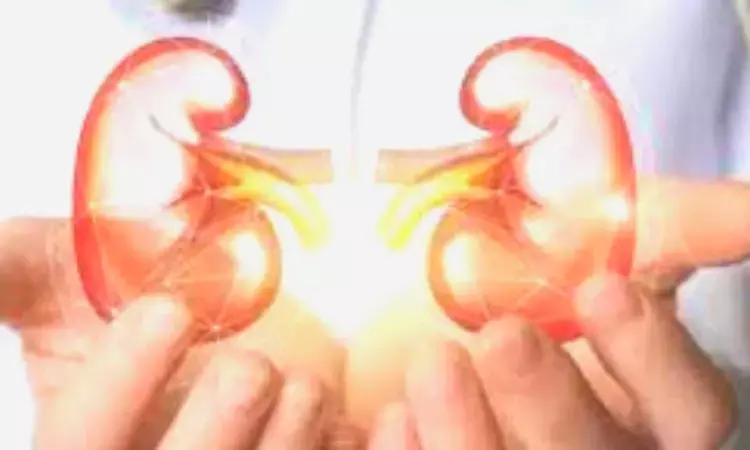- Home
- Medical news & Guidelines
- Anesthesiology
- Cardiology and CTVS
- Critical Care
- Dentistry
- Dermatology
- Diabetes and Endocrinology
- ENT
- Gastroenterology
- Medicine
- Nephrology
- Neurology
- Obstretics-Gynaecology
- Oncology
- Ophthalmology
- Orthopaedics
- Pediatrics-Neonatology
- Psychiatry
- Pulmonology
- Radiology
- Surgery
- Urology
- Laboratory Medicine
- Diet
- Nursing
- Paramedical
- Physiotherapy
- Health news
- Fact Check
- Bone Health Fact Check
- Brain Health Fact Check
- Cancer Related Fact Check
- Child Care Fact Check
- Dental and oral health fact check
- Diabetes and metabolic health fact check
- Diet and Nutrition Fact Check
- Eye and ENT Care Fact Check
- Fitness fact check
- Gut health fact check
- Heart health fact check
- Kidney health fact check
- Medical education fact check
- Men's health fact check
- Respiratory fact check
- Skin and hair care fact check
- Vaccine and Immunization fact check
- Women's health fact check
- AYUSH
- State News
- Andaman and Nicobar Islands
- Andhra Pradesh
- Arunachal Pradesh
- Assam
- Bihar
- Chandigarh
- Chattisgarh
- Dadra and Nagar Haveli
- Daman and Diu
- Delhi
- Goa
- Gujarat
- Haryana
- Himachal Pradesh
- Jammu & Kashmir
- Jharkhand
- Karnataka
- Kerala
- Ladakh
- Lakshadweep
- Madhya Pradesh
- Maharashtra
- Manipur
- Meghalaya
- Mizoram
- Nagaland
- Odisha
- Puducherry
- Punjab
- Rajasthan
- Sikkim
- Tamil Nadu
- Telangana
- Tripura
- Uttar Pradesh
- Uttrakhand
- West Bengal
- Medical Education
- Industry
Podocyte Stress Biomarker Shows Marginal Prognostic Value in Diabetic Kidney Disease

Diabetic kidney disease (DKD) stands as a leading cause of end-stage kidney disease worldwide, emphasizing the critical need for prognostic markers. A recent study explores the potential of urinary podocyte stress biomarkers, shedding light on their role in predicting renal events in individuals with DKD. This study was published in the journal BMC Nephrology by Lingfeng Zeng and colleagues.
Understanding the progression of DKD is vital, and recent research suggests that urinary podocyte stress biomarkers could serve as surrogate markers for podocyte injury. This study delves into the prognostic value of these biomarkers, particularly the podocin:nephrin mRNA ratio, in patients with biopsy-proven DKD.
The study involved 118 patients with confirmed DKD through biopsy and 13 non-diabetic controls. Urinary mRNA levels of nephrin, podocin, and aquaporin-2 (AQP2) were quantified. Renal events, including death, dialysis, or a 40% reduction in glomerular filtration rate, were assessed at the 12-month mark.
Key Findings:
The urinary podocin:nephrin mRNA ratio in DKD patients was significantly higher than in the control group (p = 0.0019).
The ratio correlated with the severity of tubulointerstitial fibrosis in DKD patients (r = 0.254, p = 0.006).
Higher urinary podocin:nephrin mRNA ratio was associated with reduced renal event-free survival at 12 months (unadjusted HR, 1.523; 95% CI 1.157–2.006; p = 0.003).
After adjustments for clinical and pathological factors, the ratio exhibited a trend in predicting renal event-free survival (adjusted HR, 1.327; 95% CI 0.980–1.797; p = 0.067), though not reaching statistical significance.
The urinary podocin:nephrin mRNA ratio demonstrates marginal prognostic value in predicting renal events in biopsy-proven DKD. Further validation studies, especially in DKD patients without kidney biopsy, are crucial to establishing the biomarker's clinical significance.
Reference:
Dr Riya Dave has completed dentistry from Gujarat University in 2022. She is a dentist and accomplished medical and scientific writer known for her commitment to bridging the gap between clinical expertise and accessible healthcare information. She has been actively involved in writing blogs related to health and wellness.
Dr Kamal Kant Kohli-MBBS, DTCD- a chest specialist with more than 30 years of practice and a flair for writing clinical articles, Dr Kamal Kant Kohli joined Medical Dialogues as a Chief Editor of Medical News. Besides writing articles, as an editor, he proofreads and verifies all the medical content published on Medical Dialogues including those coming from journals, studies,medical conferences,guidelines etc. Email: drkohli@medicaldialogues.in. Contact no. 011-43720751


